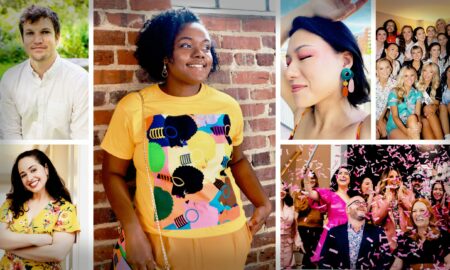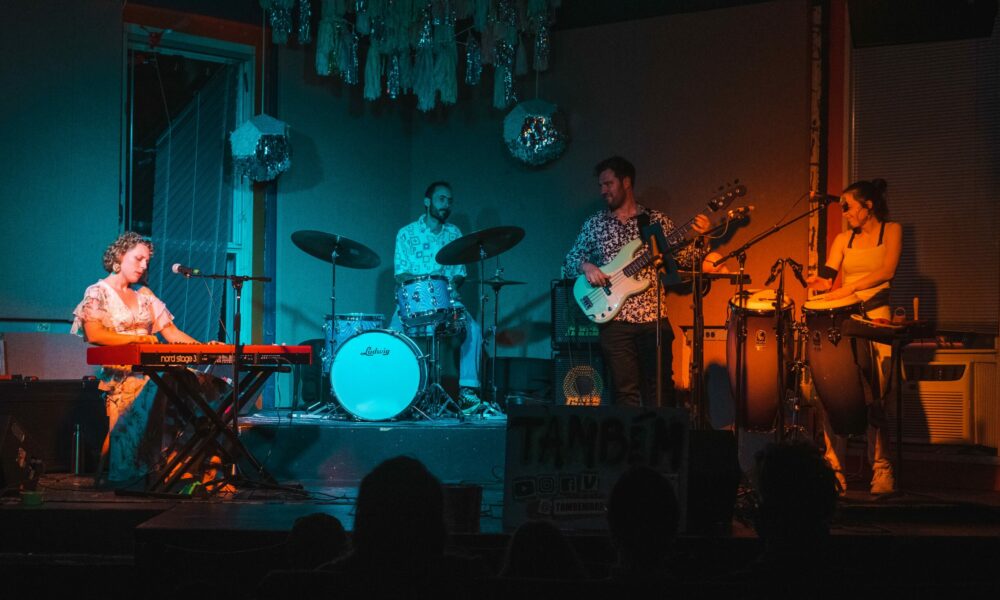

Today we’d like to introduce you to Ingrid Knight, bandleader of Também.
Hi Ingrid, could you tell us a little bit about Também?
Também is a woman-led Brazilian musical quartet that bends genre, combines Portuguese and English lyrics, and experiments with rhythm and harmony. Our music is characterized by layers of vocal harmony, traditional Brazilian rhythms, and interwoven percussive parts and inspired by Brazilian greats such as Sergio Mendes and Hermeto Pascoal.
We are both a live ensemble performing across North Carolina and a group of studio musicians who produce recorded work. We released our first EP a month and a half ago and just received a grant from the Durham Arts Council to record new work in 2023! I am currently thirty-eight weeks pregnant and taking a little time off for maternity leave, but we have a series of live shows booked starting next February.
How did Também develop into what it is today?
Também started out as a piano/percussion duo in Boone, North Carolina that I formed with percussionist and vocalist Deborah Rosengarth in 2018. Deborah and I went to school together at Appalachian State University and discovered we had a lot of the same musical influences, particularly some Brazilian artists that we both loved, such as Elis Regina and Sergio Mendes. We began experimenting with some genre-bending grooves that combined our shared interest in Brazilian music, jazz music, and classical chamber music. From the beginning, we connected on themes of radical creativity, pushing boundaries, and redefining boxes of musical genre.
In 2019 I moved to Durham to study jazz at NCCU and met Andy Powell, the bassist in our group. Também performed as a trio for a couple of years, mainly focusing on our eclectic originals mixed with bossa nova, samba, and jazz standards. Our project was slowed down by the pandemic, but the three of us continued to meet and work on our sound over those isolated years. In 2021 I met an Uruguayan drummer named Gastón Reggio, who had studied percussion in Brazil and had just moved to the Raleigh area with his wife. He was eager to make musical connections in the area, and after one rehearsal with him, we knew it was a perfect fit. With the addition of a drummer, our sound filled out, and we began performing regularly as a quartet in Raleigh and Durham.
It was a slow evolution, but the band really came together after several years. Each new member played a vital role in building our sound. Andy provided a lot of stability for the project with his understanding of groove and role as bass player. Gastón really helped expand the group’s rhythmic possibilities with his knowledge of Brazilian rhythms. Também has also collaborated with conguero Aaron Sanchez-Guerra and flutist Rebecca Kleinmann, two enormously creative individuals who each brought fresh ideas for Também. At its core, Também is a collaborative project that thrives off of unique combinations of ideas.
Would you say it’s been a smooth road, and if not, what are some of the biggest challenges you’ve faced along the way?
Creating and being a part of this band has been one of the most challenging things I have ever attempted in my life. Everything I do with Também feels so personal and close to home, like a reflection of my inner psyche. The project serves as a constant mirror showing me where I’m at emotionally, creatively, and energetically. It is sometimes euphoric and at other times, painfully difficult.
One of the biggest struggles has been finding a consistent creative process. There is so much that goes into the production of music. It starts with a riff, an idea, maybe a piece of a melody, and then the writing of the song slowly unfolds. However, once the song is written, the creative process is far from over. Then comes arranging it for the studio, writing the vocal harmonies, the percussive parts, synth pads, really building a sonic world. Being able to take a song from the beginning all the way to the very end was a multi-year learning process for me.
It took us almost four years to release our first studio recordings – a collection of songs entitled “Esmeralda” that we released on October 15th of this year! These songs harkened back to Deborah’s and my songwriting beginnings in 2018, so getting a handle on our sound and recording process took a lot of time and patience.
Appreciate you sharing that. What else should we know about what you do?
“Também” is a Portuguese word roughly translating to “also” or “as well” in English. A key element of the project is the inclusion of a multiplicity of influences to create something surprising and unlikely. I am most proud of the newness of our original songs and how they inspire interest in the listener who is looking for something that they have never heard before. I used to think that it was a problem that I couldn’t easily define the genre of music we were playing, but now I recognize it as our greatest asset!
Risk-taking is a topic that people have widely differing views on – we’d love to hear your thoughts.
I think that deciding to become an independent artist is a risky decision in and of itself! Success is not guaranteed, and a gigantic amount of work is required upfront before anything really happens; at least that has been true for my journey as an artist. I’m still putting in many hours each week in the hopes that it will pay off in the future, but there is always an undercurrent of uncertainty that accompanies this path.
I also have found that the decision to pursue Brazilian music in the United States was a risky decision. The music is often not as immediately relatable for our American listeners, and I have been tasked with building an audience who is specifically interested in what we are doing. With any given show, it’s hard to know whether it’ll flop or be amazing, depending on who’s present! I have had to learn that how the music is received is not always entirely dependent on how good my performance was, it can be a matter of whether the audience was a good fit. In that way, it seems that every show I play presents a certain amount of risk.
Contact Info:
- Website: www.tambemband.com
- Instagram: instagram.com/tambemband
- Facebook: facebook.com/tambemband
- Youtube: https://www.youtube.com/watch?v=GkyGxW8KAkg
- Other: https://open.spotify.com/artist/2VcWIjIEFOwunqWAlNSAuX
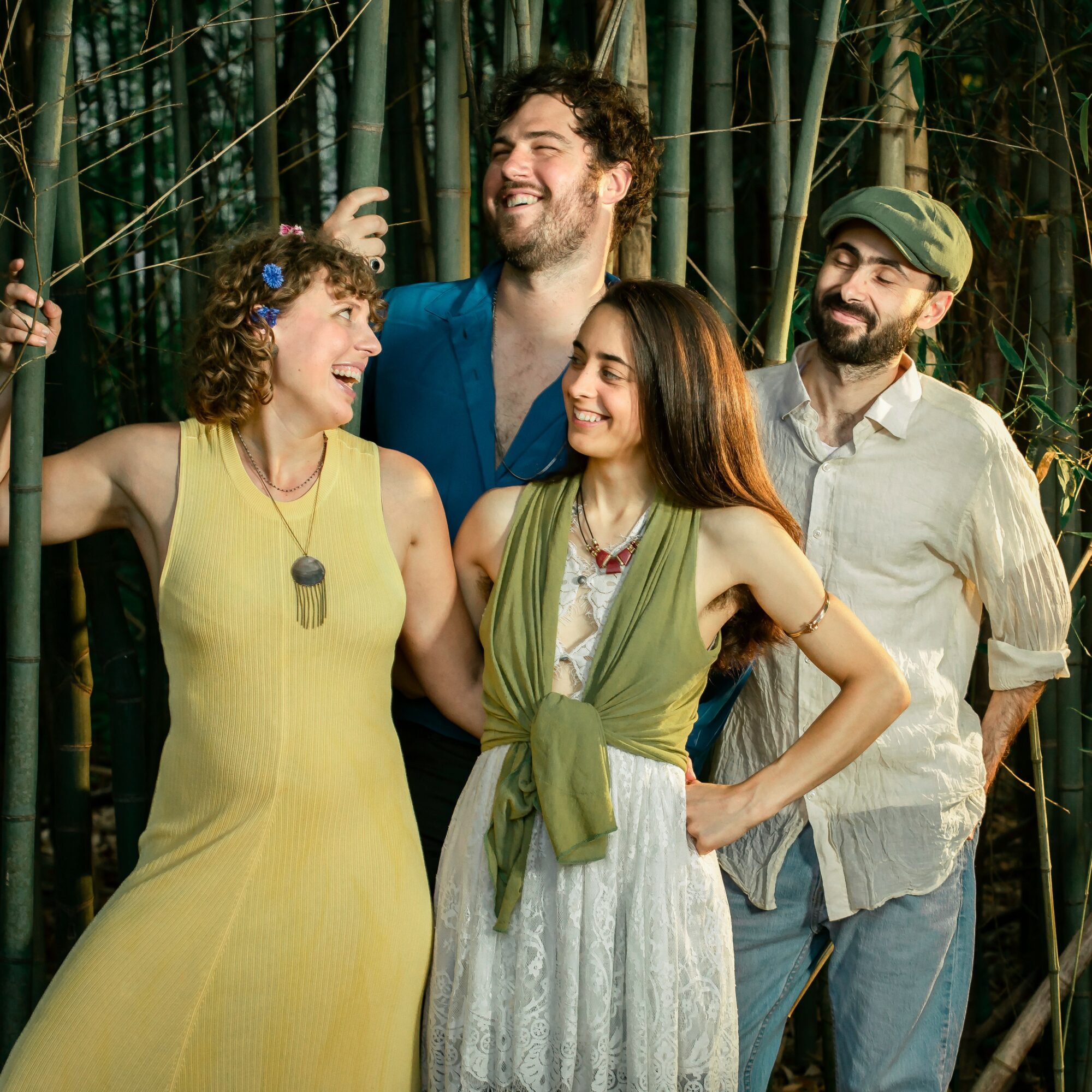
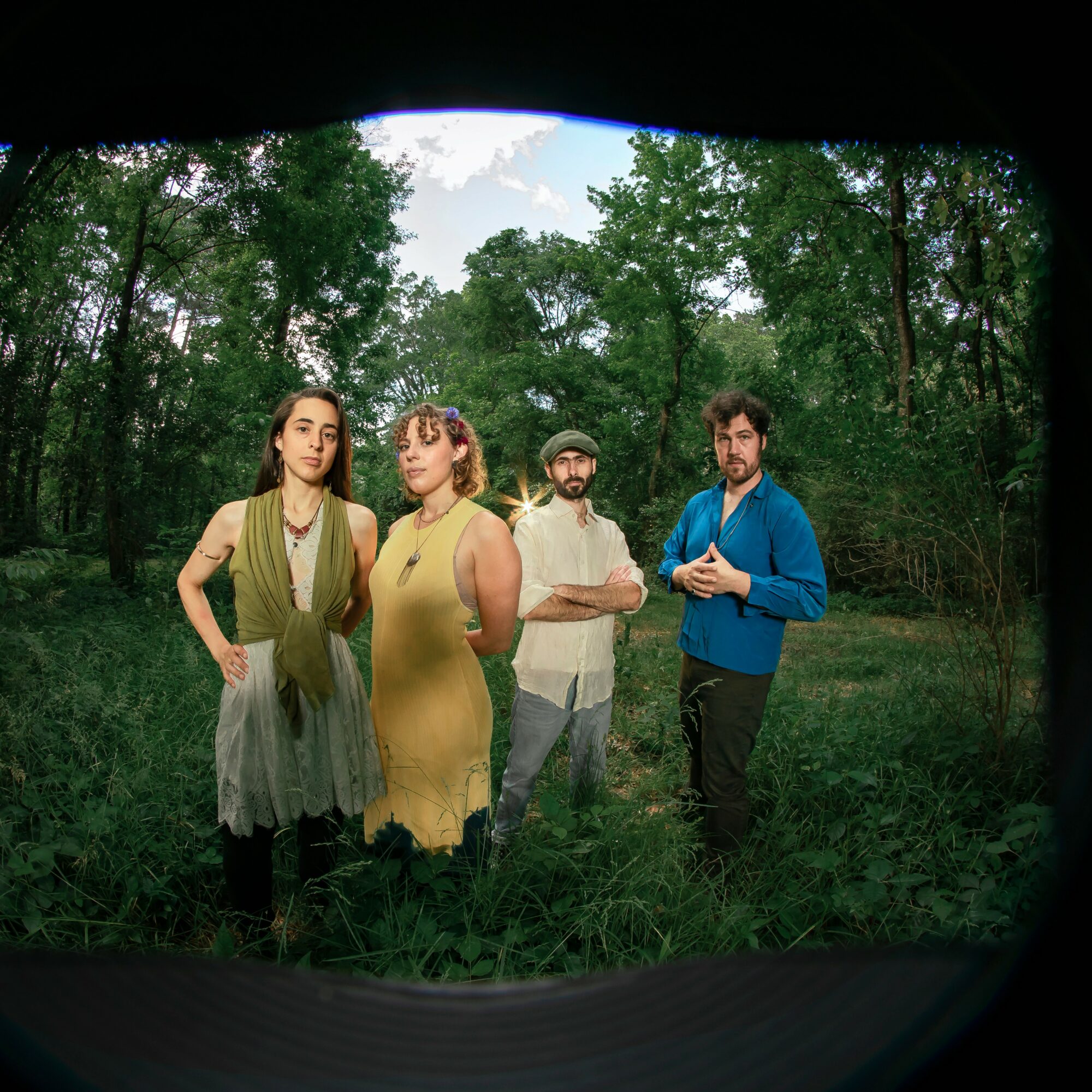
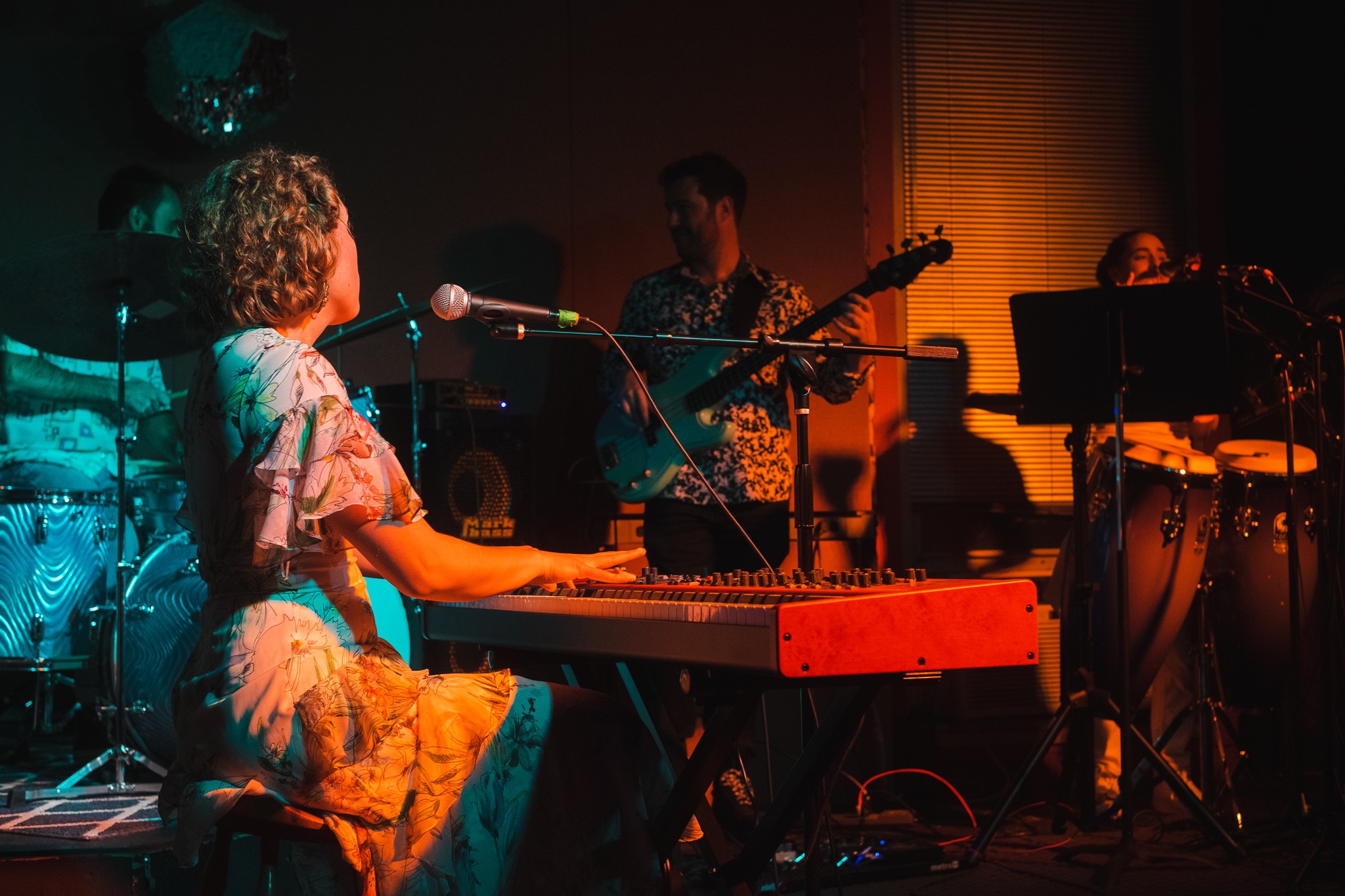

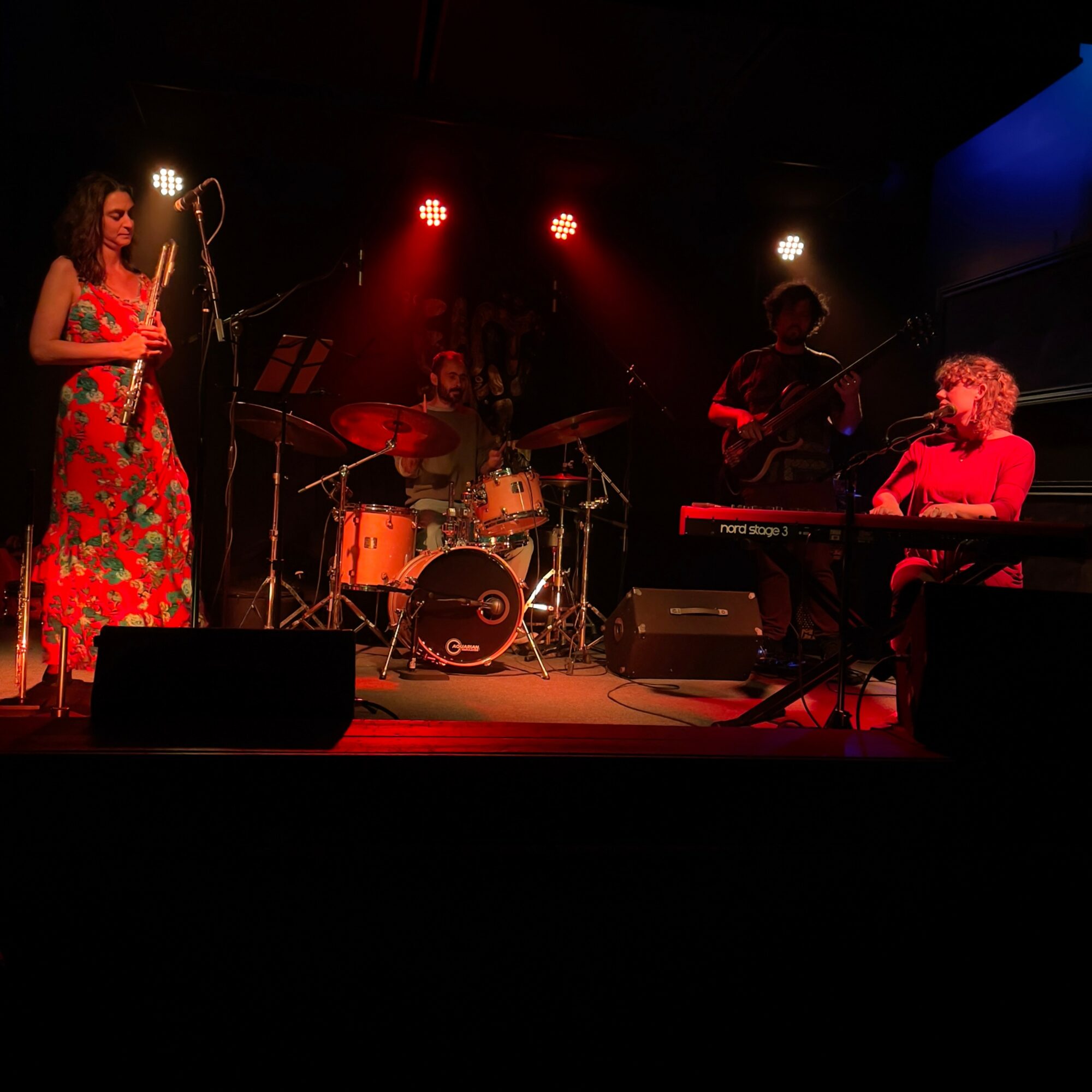
Image Credits
Emma J. Finley
Lauren Joyner
Kimberly Meers

